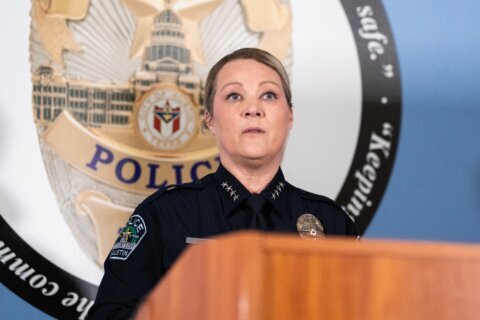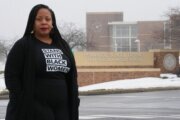This content is sponsored by Wells Fargo.
Optimism is finally starting to grow across the country as more people receive the coronavirus vaccine and the nation as a whole begins to reopen.
While the return of jobs and the economy make a climb back in the right direction, small businesses in the Washington, D.C. area are getting a boost from Wells Fargo, which launched a series of initiatives focused specifically on diverse and female small business owners.
“In a time of unprecedented challenges, D.C.’s small business owners have demonstrated grit and resilience,” said Bob Marshall, the national small business development leader with Wells Fargo. “They are the heartbeat and livelihood of our D.C. community and they deserve our support.”
Open for Business
Through one of its initiatives, called the Open for Business Fund, Wells Fargo is donating roughly $420 million to nonprofits and Community Development Financial Institutions that support small businesses nationwide.
Community Development Financial Institutions, also called CDFIs, are nonprofit lenders that help business owners access funding that they might otherwise be unable to qualify for using traditional banking options.
In utilizing CDFIs, businesses can obtain emergency grants and low-cost loans along with coaching and training to help revamp their business models.
It is all aimed at stabilizing the small business sector and establishing programs that remove systemic barriers to success, particularly in low and moderate income neighborhoods.
One Open for Business Fund recipient includes LISC, a non-profit CDFI that supports small businesses in D.C. and beyond.
According to interim LISC CEO Lisa Glover, LISC was able to use money from the Open for Business Fund to distribute grants that did not need to be repaid to numerous businesses including JC Lofton Tailors, located on U Street in Northwest D.C.
The company’s owner, Eddie Lofton, applied for and received a $10,000 LISC grant.
Lofton is a longtime tailor whose grandfather was the first African American to own a tailoring shop and tailoring school in the District.
“That $10,000 really helped me out,” Lofton said. “I’ll forever be grateful,” adding that the money would allow him to continue his grandfather’s legacy.
“We focused on small businesses that are not well-served by traditional channels, especially small businesses led by people of color and women in low-wealth and rural communities,” said Glover. “Those were the hardest-hit small businesses, and they really needed help to survive and recover from the pandemic’s economic fallout.”
As of March, the Open for Business Fund had deployed more than $125 million in grants, helping to protect a projected 66,000 small business jobs at nearly 22,000 small businesses nationwide.
“We’re proud that this effort is helping preserve small business jobs, the majority of which are at businesses owned by people of color,” said Marshall.
Small business owners are able to visit a list online to see which CDFIs are part of the program.
Where We Live
Another popular initiative is the “Where We Live” program, which Wells Fargo is using to commit more than $1.6 billion in lending and philanthropy efforts in the D.C. community to help make long-term investments in the District’s neighborhoods.
Life Asset, a nonprofit lender focused on supporting diverse small business owners in the D.C. region, received a $100,000 grant from Wells Fargo through the program.
It used the money to provide coaching training sessions to more than 3,000 business owners – many of whom have experienced homelessness – on ways to adapt their business models during the pandemic.
“Wells Fargo’s assistance is helping us enable our entrepreneurs to bring their ideas to life and create more local businesses and opportunities in our local communities,” said Markus Larsson, executive director of Life Asset.
One of the businesses that received funding and training from Life Asset was Sisters Care, a company in D.C. that offers food services, transportation and personal care to seniors.
“We are very grateful to Life Asset for the loans and training that we acquired,” said the company’s owners Wendy Serrano and Alfaqueny Serrano, two sisters who immigrated from the Dominican Republic 25 years ago.
They said the funding helped them buy equipment, uniforms and supplies.
Wells Fargo has been a presence in D.C. since 1914 and provides local funding for housing stability, career readiness and affordable housing, among other community needs.







